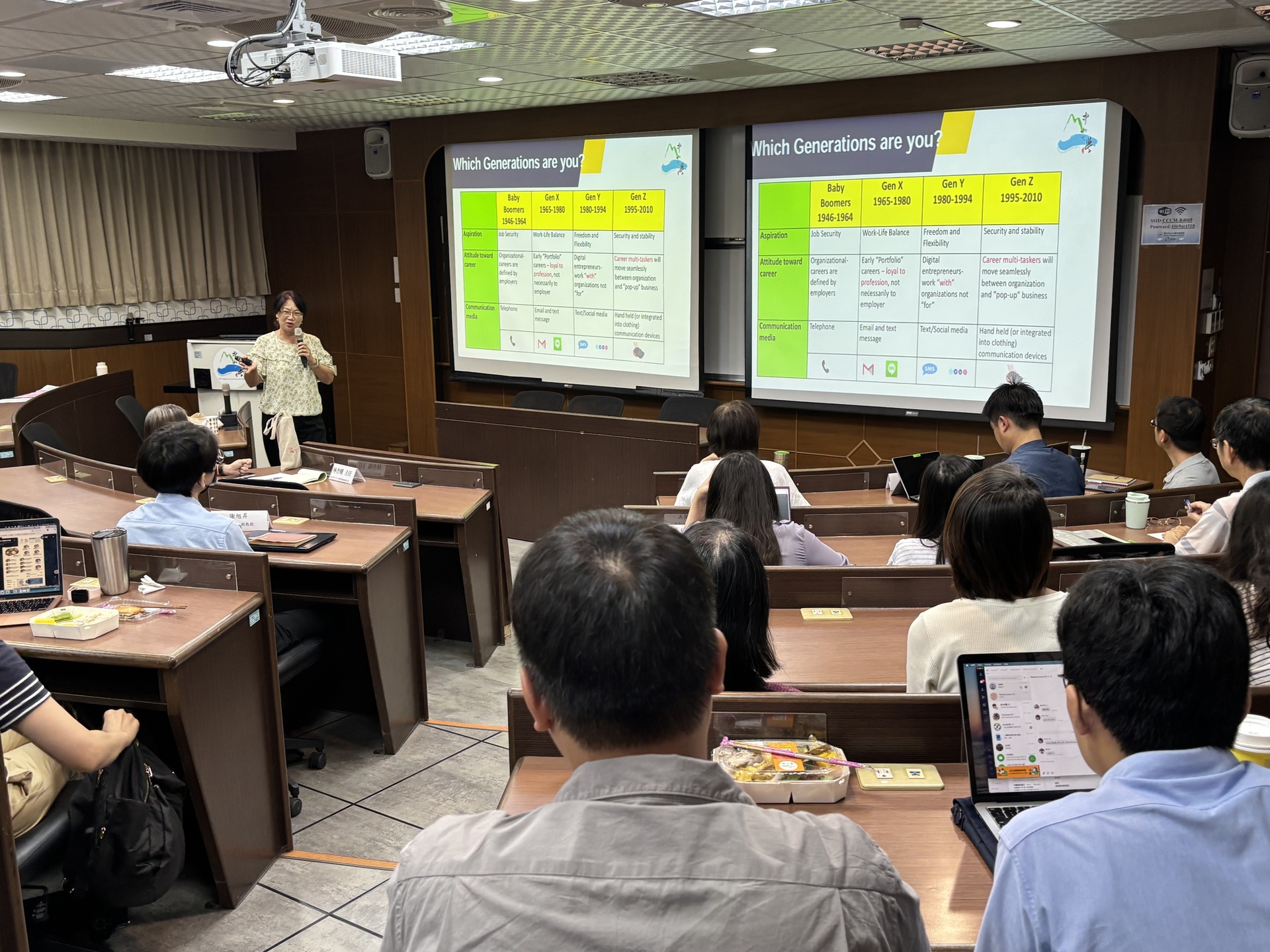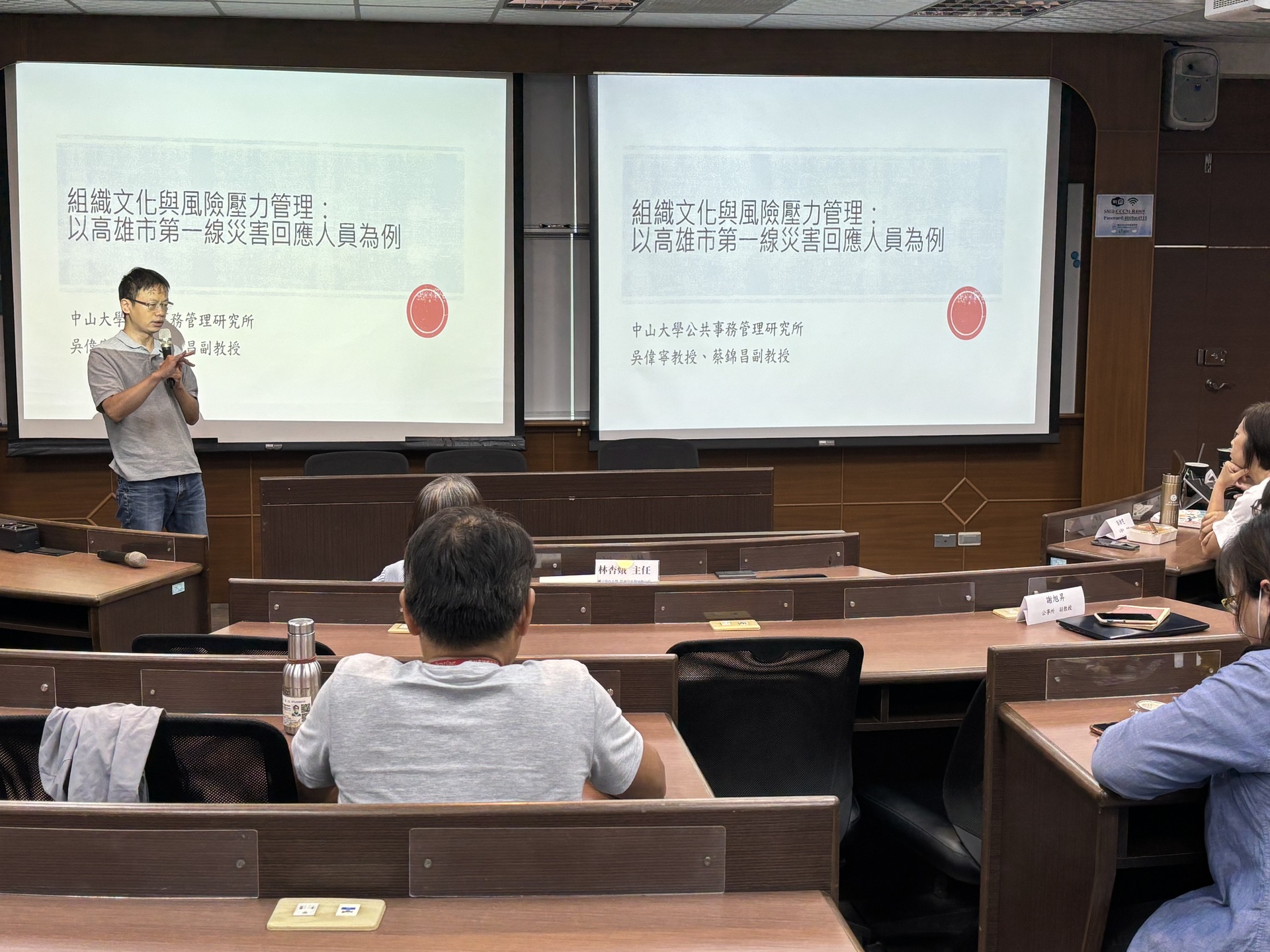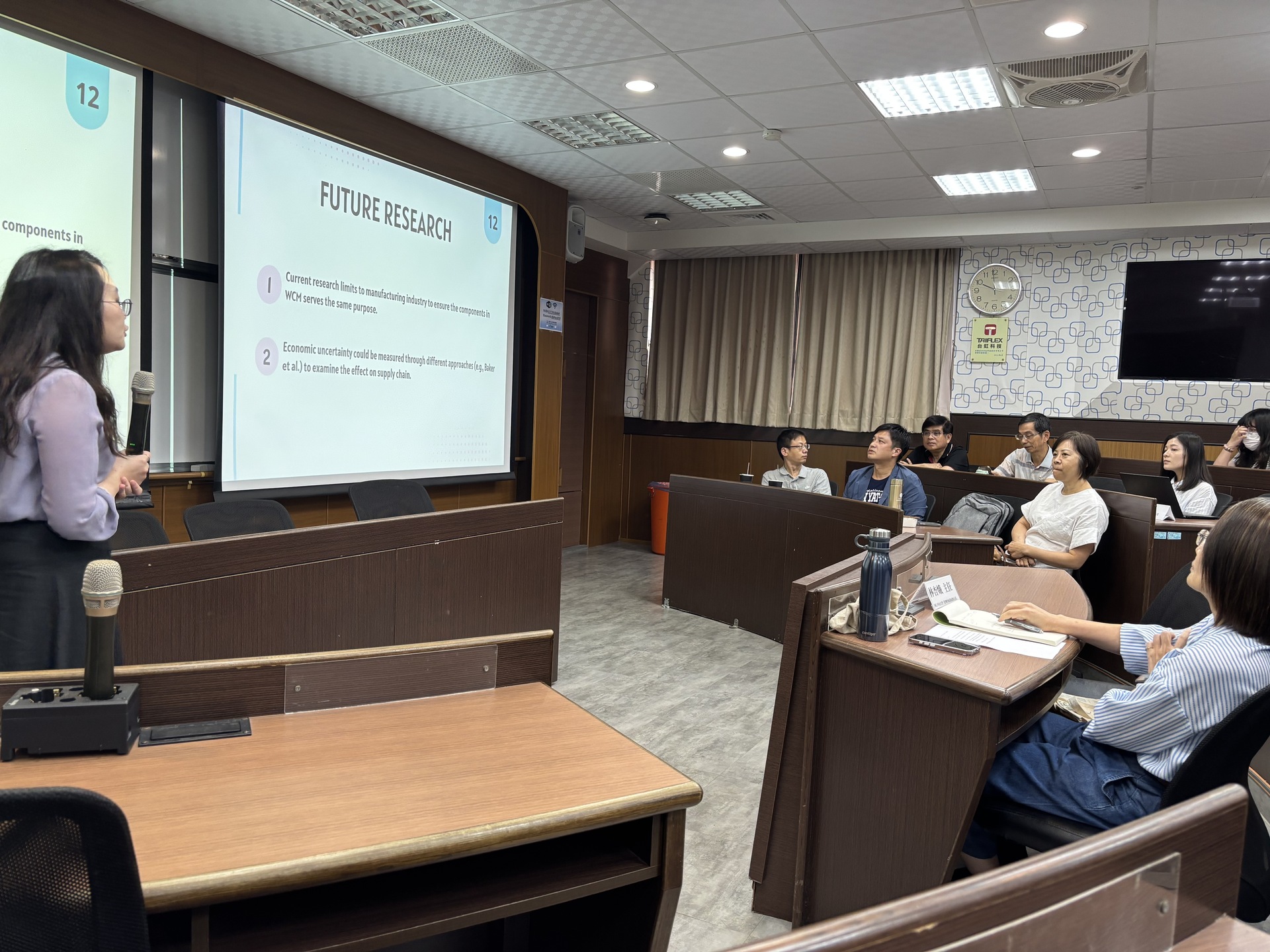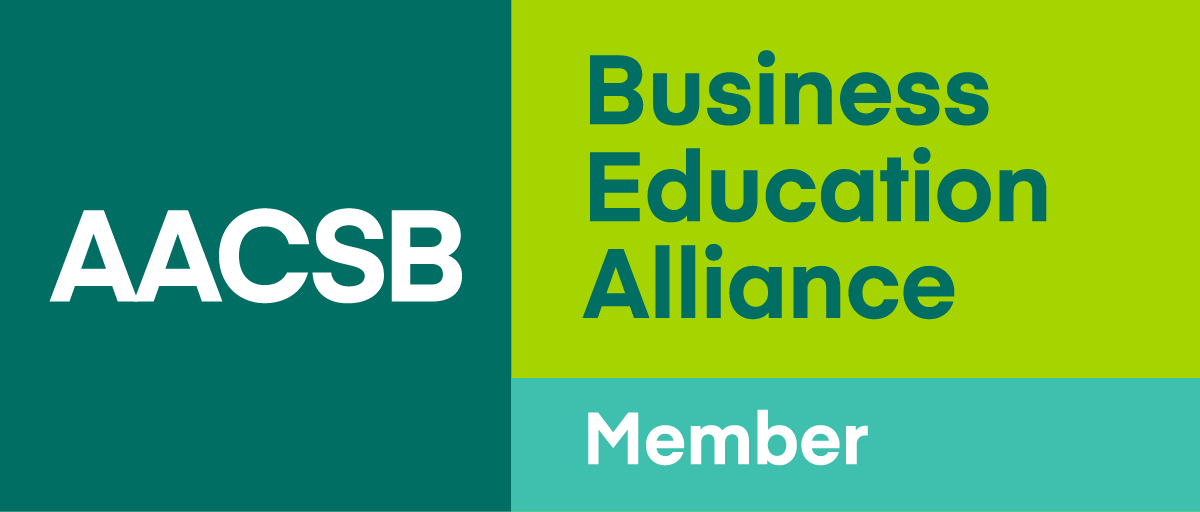[CM OAD] Research Meets Reality: NSYSU Faculty Address Health, Stress, Sustainability, and Pedestrian Rights
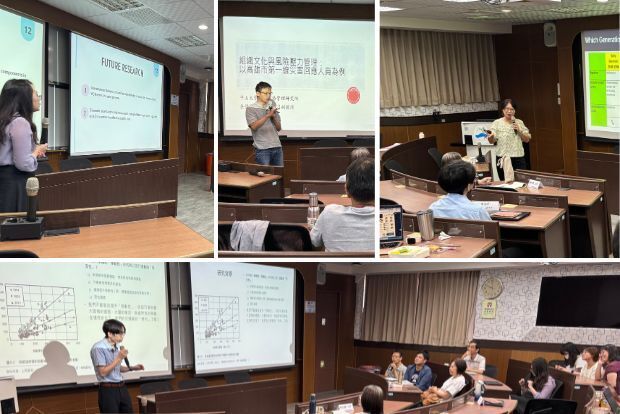
At the College of Management, research is not conducted in isolation—it responds to real-world challenges. From Gen Z’s digital health literacy and firefighter stress management to corporate cash flow resilience and pedestrian rights reform, four faculty teams showcased their research at the 10th Research Team Results Forum, hosted by the Office of Academic Development on June 12, 2025. Highlights from the four presentations are as follows:
Session 1|The Preliminary Study of Generation Z’s Health
Prof. Shu-Chuan Yeh and Asst. Prof. Jim C.Huang (Department of Business Management) presented a study examining how Generation Z accesses health information online, using the ABC (Affective, Behavioral, Cognitive) model to analyze influencing factors. A survey of 277 young respondents revealed a preference for convenience and autonomy in digital health tools, such as symptom searches and online appointments. Key behavioral drivers were health awareness and the appeal of self-managed care. The study highlighted the generational shift in healthcare behavior, underscoring the impact of digital technology. The team suggested further exploration into how Gen Z engages with AI tools like ChatGPT for self-diagnosis, to deepen understanding of digital health literacy.
Session 2|Organizational Culture and Risk-Stress Management: A Study of Frontline Responders in Kaohsiung
Prof. Wei-Ning Wu and Assoc. Prof. Chin-Chang Tsai (Institute of Public Affairs Management) investigated stress and turnover intentions among frontline firefighters in Kaohsiung. The research found that while masculine organizational culture can buffer stress, it may also exacerbate turnover risk when coupled with negative coping strategies. Prof. Tsai emphasized that such cultures are not a cure-all and must be complemented by psychological support systems. The study recommends organizations strengthen mental health interventions and adapt cultural norms to enhance workforce stability.
Session 3|Business Sustainability through Cash Flow Management and Government Measures under Supply Chain Disruption
Prof. Chou-Wen Wang and Asst. Prof. Lin-Chih Wu (Department of Finance) shared findings from their research on cash flow strategies and government responses during COVID-19-related supply chain disruptions across four countries. They found that while extending customer payment terms may temporarily ease cash flow pressures, it could damage investor confidence long-term. Similarly, delaying supplier payments requires careful evaluation of bargaining power to avoid increased costs. Government subsidies played a vital role in helping firms stabilize operations. The team emphasized the importance of integrating sound working capital management with public-sector resources to build long-term business resilience.
Session 4|Pedestrian Rights and Collaborative Reform: An Action Research Approach
Prof. Yen-Wen Peng and Assoc. Prof. Hsu-Sheng Hsieh (Institute of Public Affairs Management) addressed the rise in pedestrian casualties in Taiwan. Their action research involved working with the Kaohsiung Pedestrian Advocacy Association over two years, participating in surveys, public forums, and children’s design workshops in Yancheng and Hamasen. These efforts led to local government responses and improvements in walkable infrastructure. The study demonstrated that civic engagement plays a crucial role in policy accountability and advancing traffic justice beyond mere convenience. The researchers emphasized that civil society networks are vital in bridging institutional gaps and driving sustainable urban reform.
-- Report by the Office of Academic Development / Edited by College of Management Media Team
